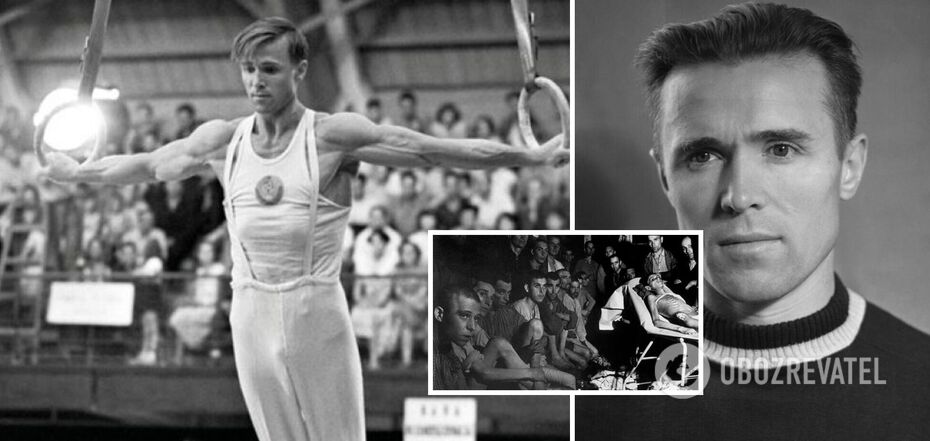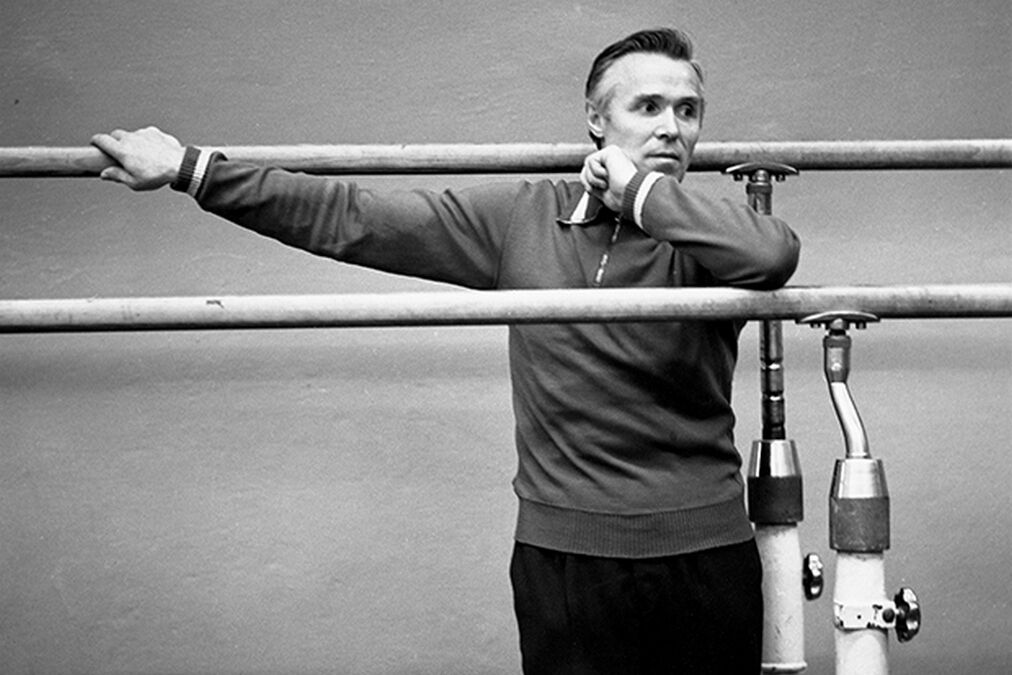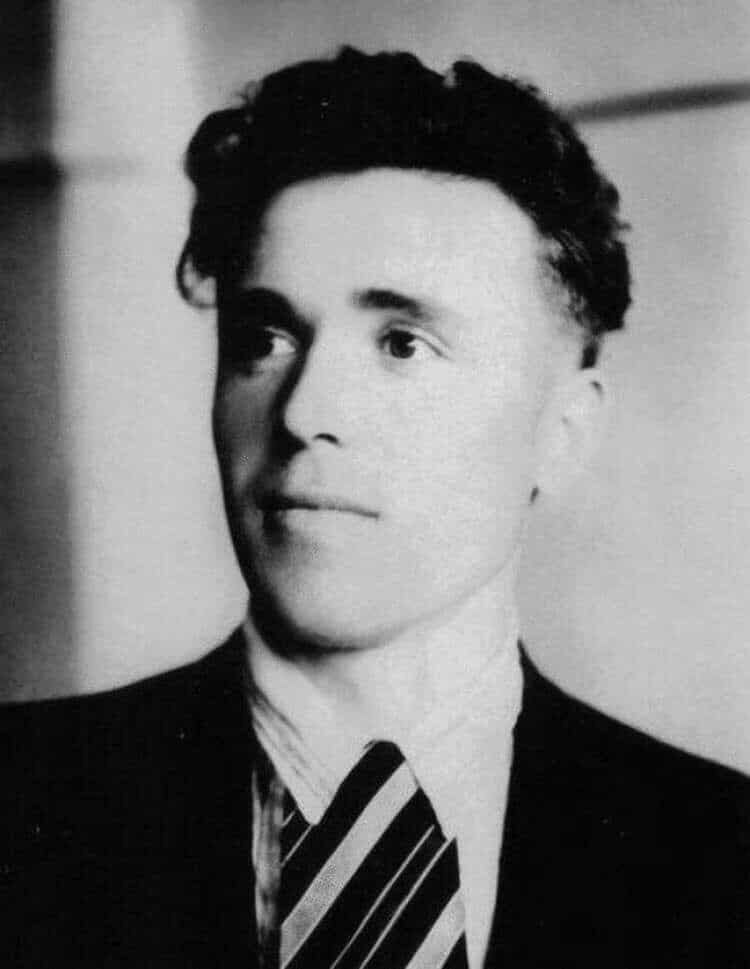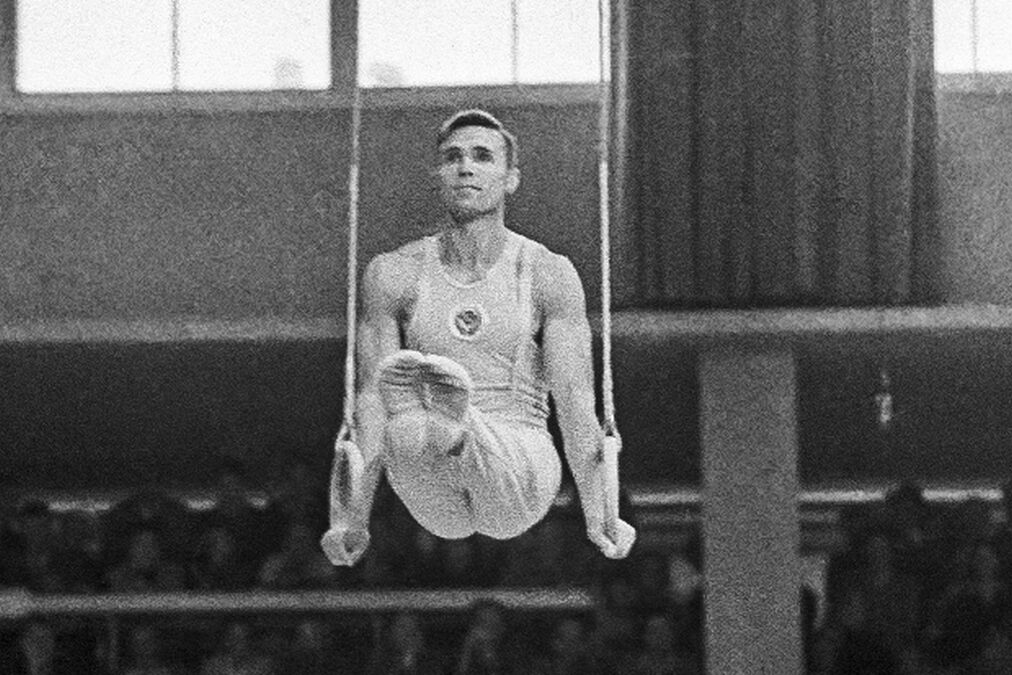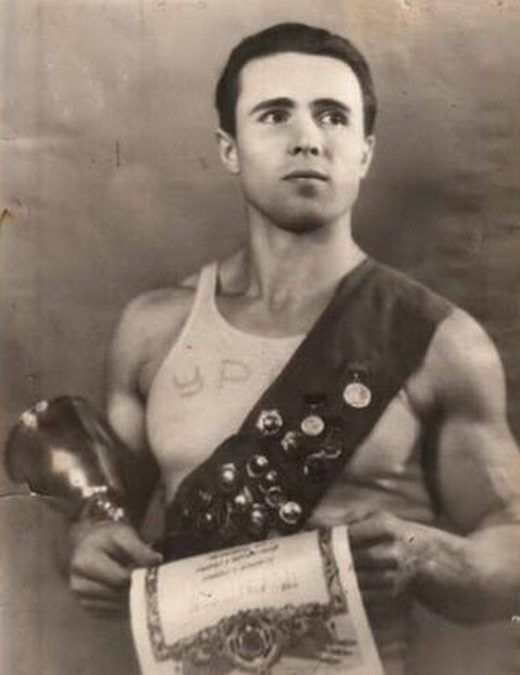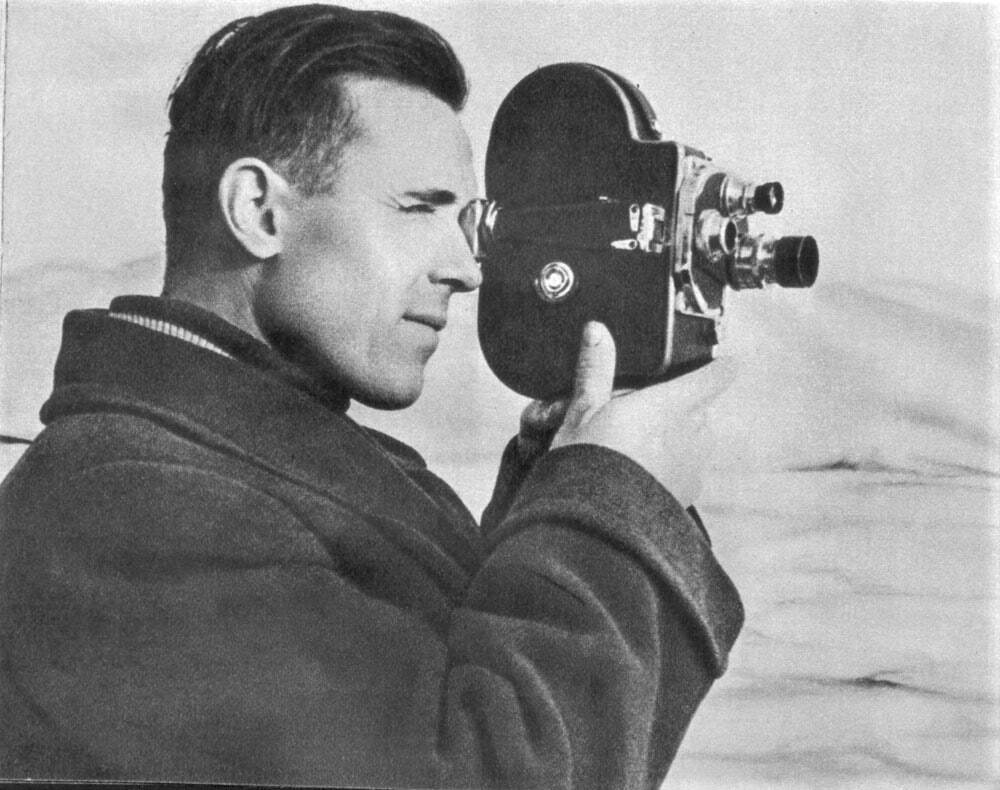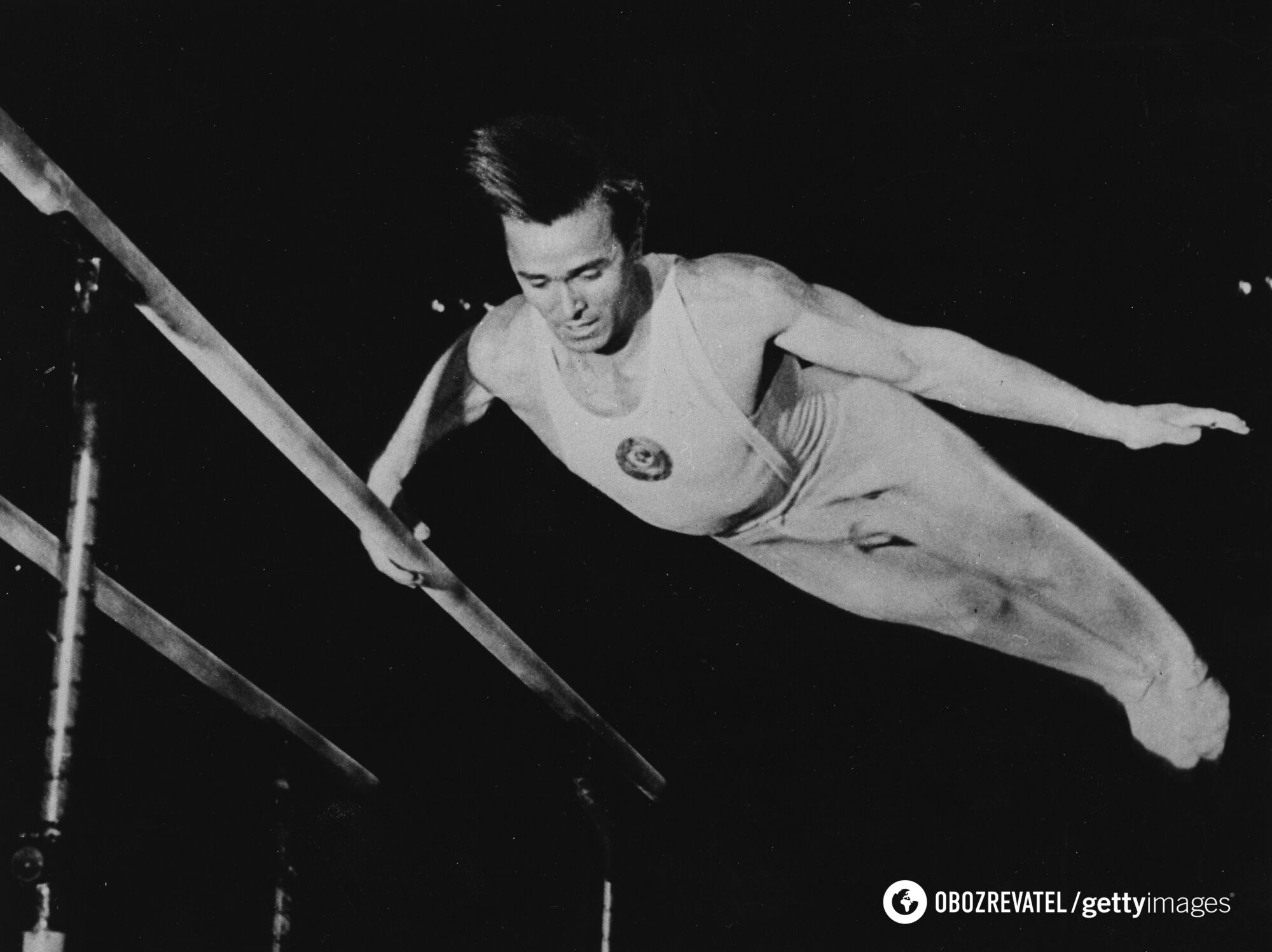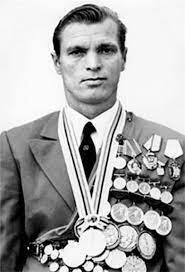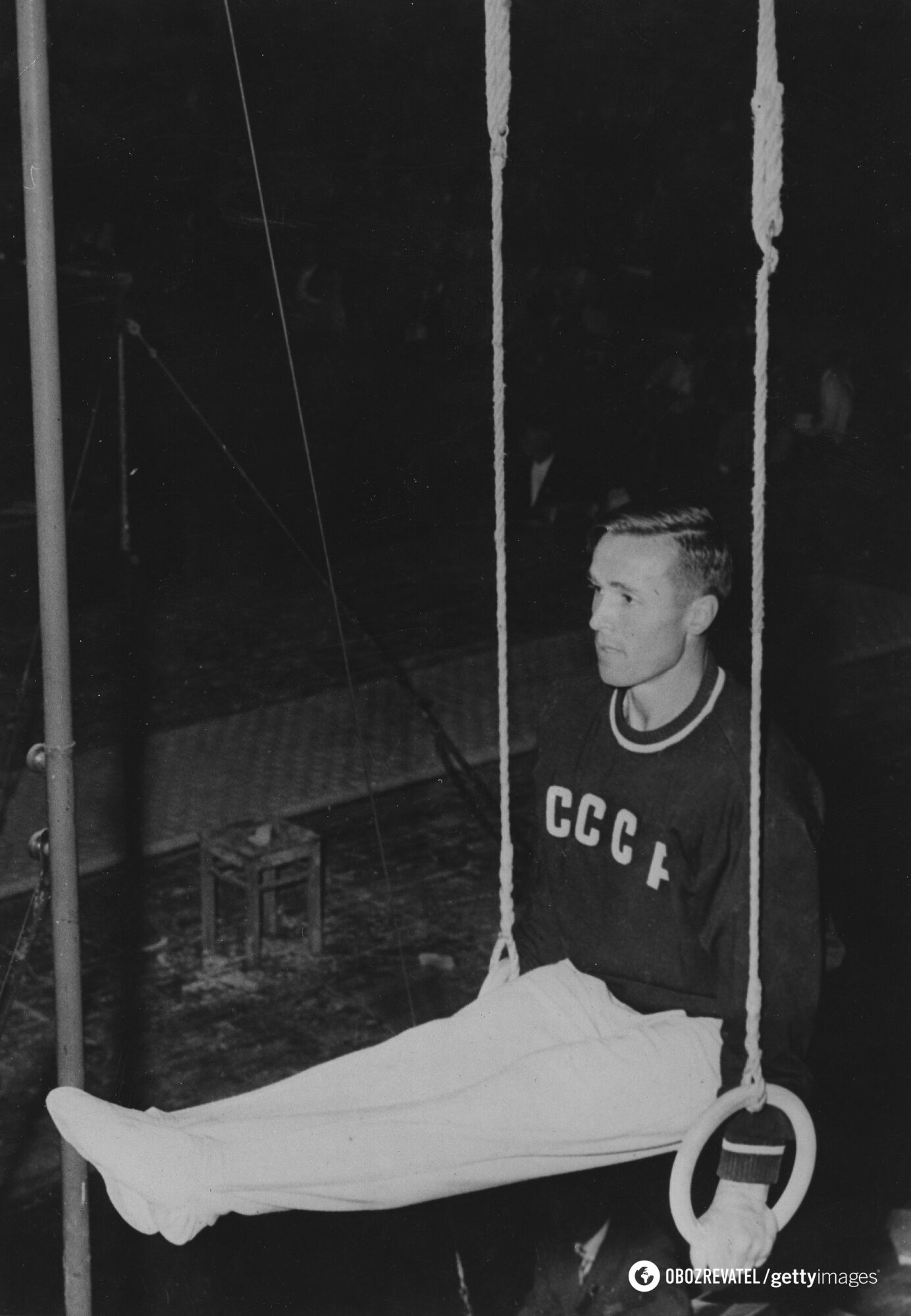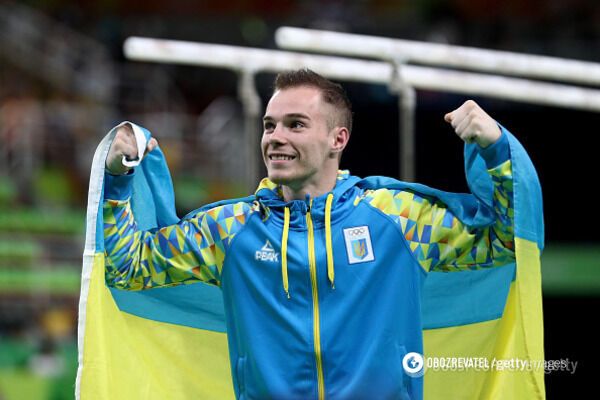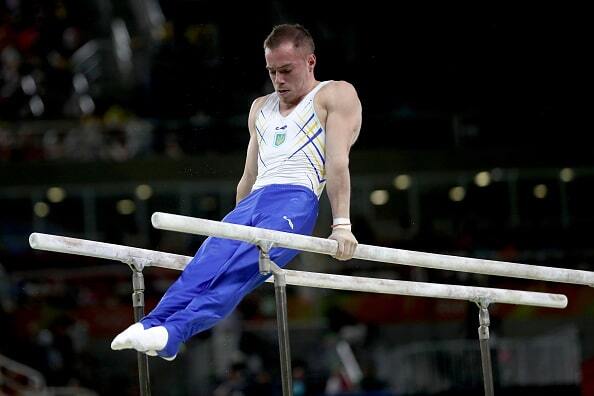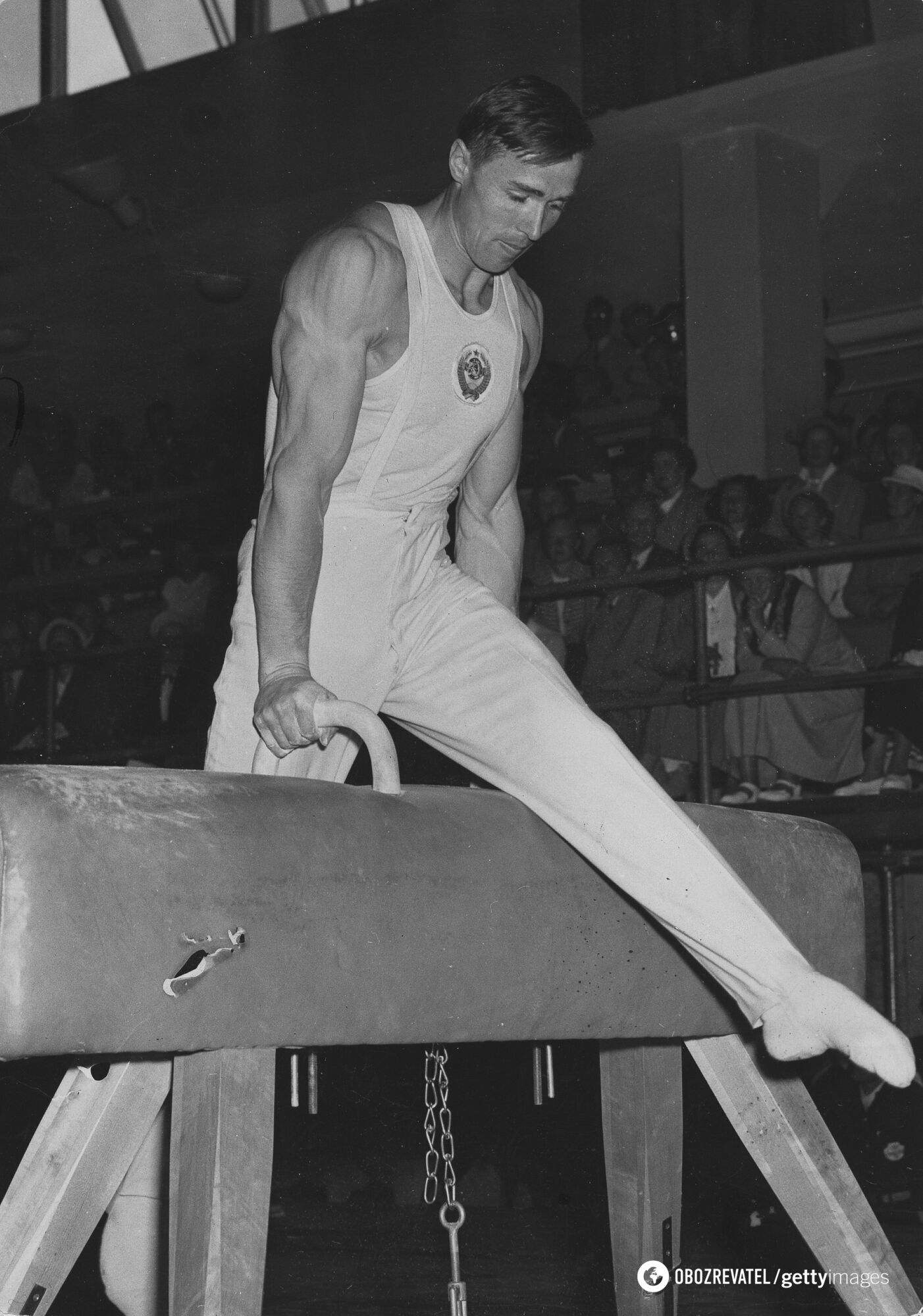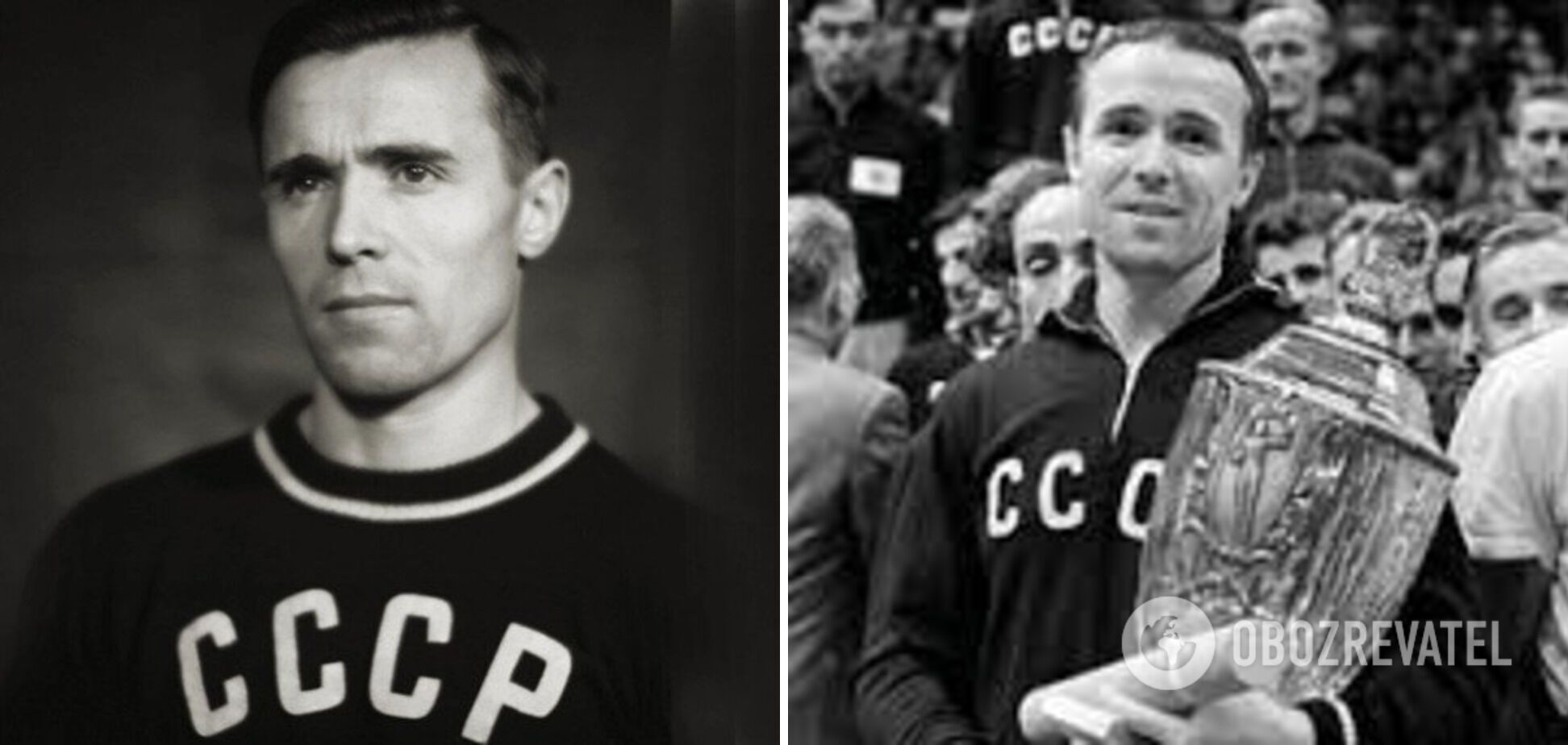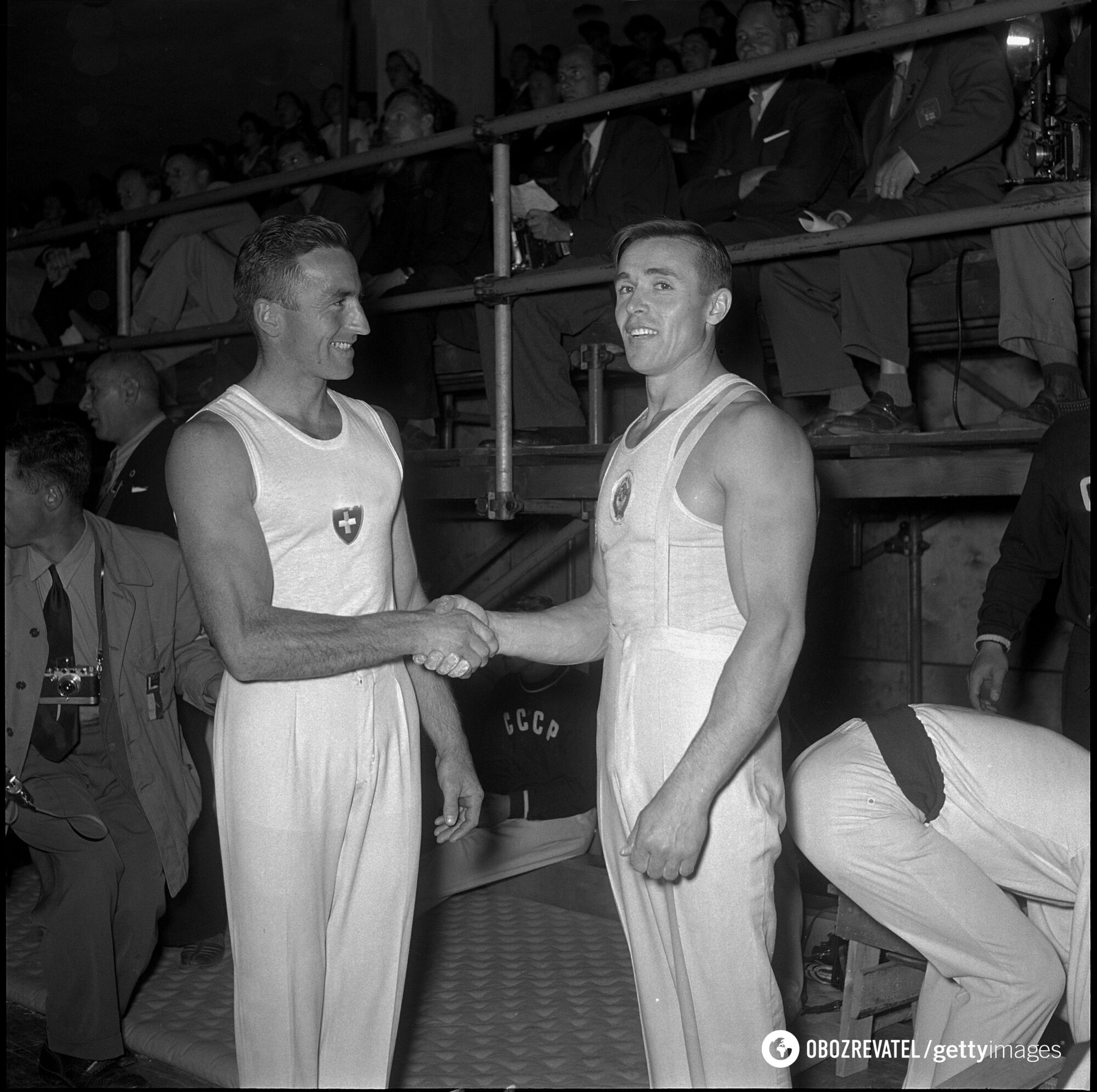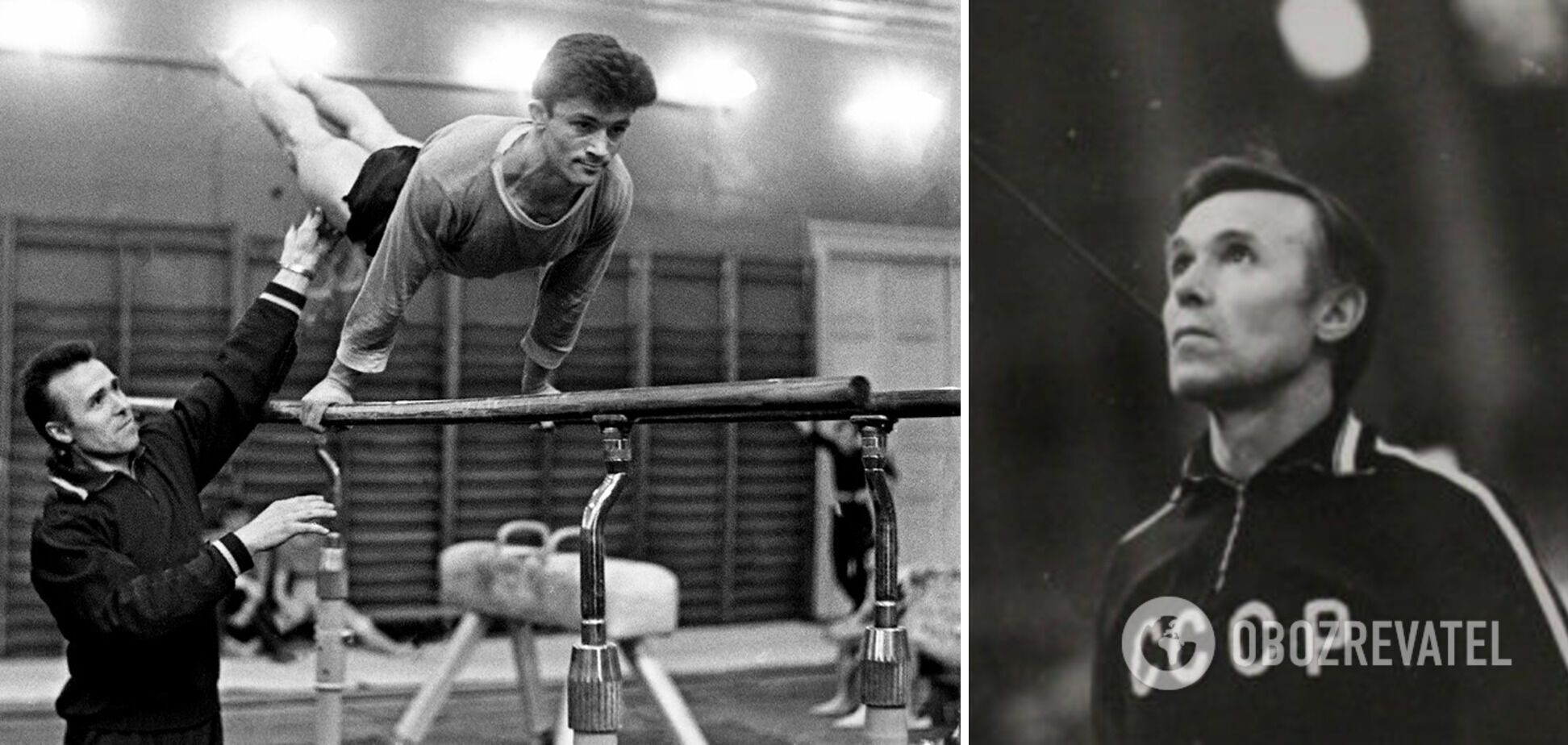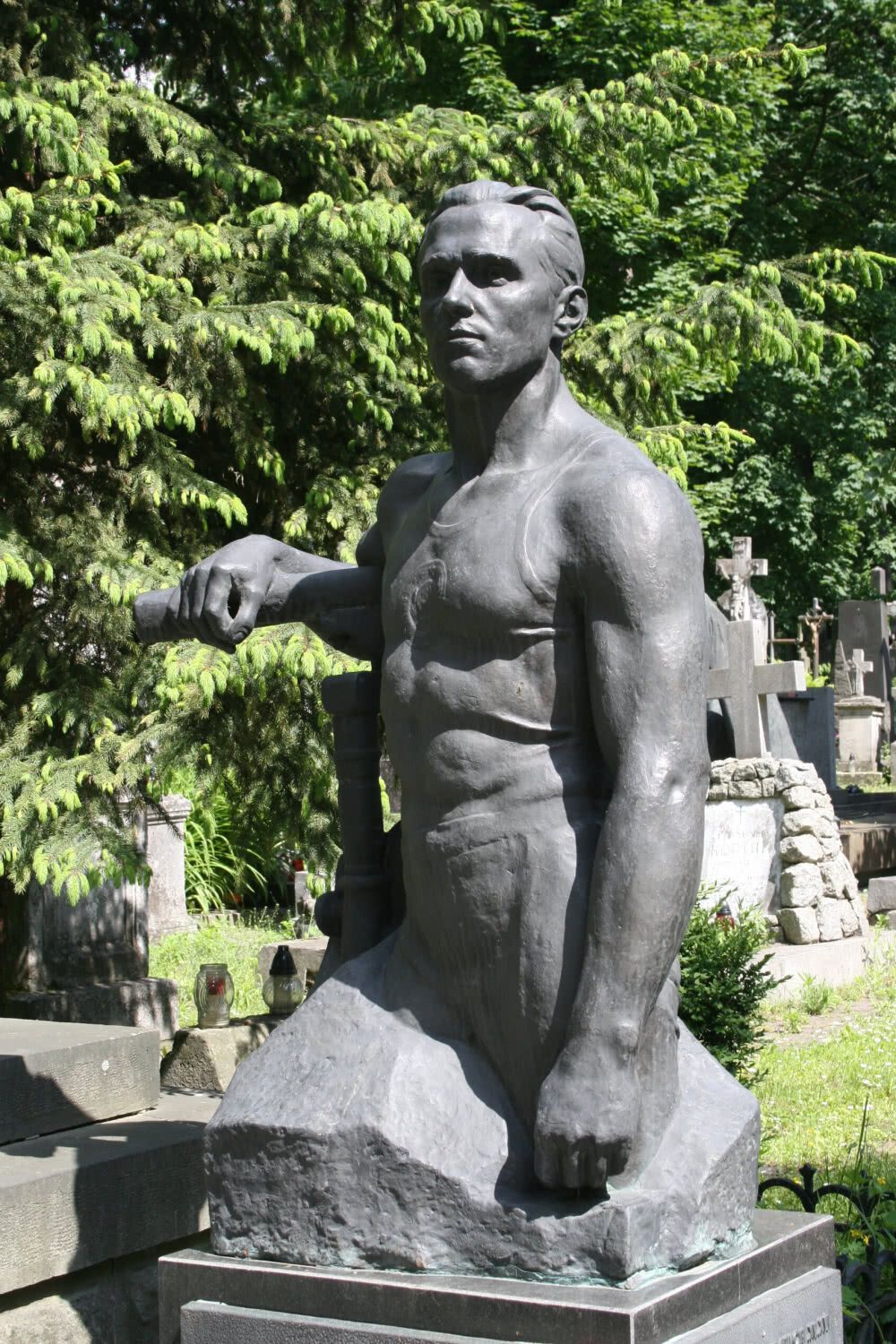Sport
He survived the death camps, and his mother recognised him by his scar: the legend of Ukrainian sports was not broken by his father's captivity and repression in the USSR
Neither his mother nor his neighbours believed in the talent of Ukrainian gymnast Viktor Chukarin. The Soviet regime broke up his family, and the Nazis did everything they could to drive the athlete to his grave. However, after going through 17 concentration camps, torture and inhumane conditions, he survived thanks to his character and desire to return to the platform. Chukarin became a seven-time Olympic champion in gymnastics and the most decorated Soviet athlete at the first Summer Olympics for the USSR in 1952.
OBOZREVATEL decided to recall the most interesting moments from the life of the legendary Ukrainian athlete who united Mariupol and Lviv and whose native places are now under Russian occupation.
A STRONG BOY. Viktor Chukarin was born on November 9, 1921 in the Donetsk region in the small village of Khreshchatytske near Mariupol, where the family soon moved. Since childhood, Viktor was a very active tomboy. He did everything - swimming, football, rowing. At the same time, he tried different elements in the yard on the horizontal bar.
The coach of the school section saw that the boy had talent and invited him to take up gymnastics. However, neither his mother nor her family liked Viktor's new hobby. So at first, Chukarin entered a metallurgical college. However, he soon realised that he could not do without gymnastics.
When the future champion decided to apply to the Kyiv College of Physical Culture, only his older brother and younger sister supported him. By that time, his father had been repressed by the Soviet authorities. And all because of a letter to his Romanian relatives, in which he asked them to help the family with food. And it was the famine of the 1930s in Ukraine. Soon Chukarin Sr. died far away from his family...
"A strong guy, but stupid," Viktor constantly heard from his neighbours when he started talking about his desire to become a gymnast and study in Kyiv. "Every guy has a job to do. Some make pipes at the factory. Others are in the military. Still others go to sea. And what kind of business is physical education?" his mother's relatives were indignant.
"I had never travelled so far before, and it took me a while to convince my family. "Why do you need this gymnastics," my mother cried. - "You could have gone for some other position, even a medical one." "Come on, mother, if Viktor has a passion for this business, we won't force him to do it," his brother Pavlo stood up for him," Chukarin recalled in his book The Way to the Top.
His sister also tried to persuade her mother, emphasising how Viktor had changed after the training sessions: he stopped "hanging around with the local lobotryas", started studying better and helping out around the house. Although his mother's relatives were categorically against it, Viktor stood his ground, and if he failed to become better, he would go to work as a labourer at the factory.
But the boy succeeded - at the age of 19, he became the champion of Ukraine and was awarded the title of Master of Sports of the USSR.
17 CONCENTRATION CAMPS. It's hard to imagine how much more Chukarin could have won if it hadn't been for the Second World War. The gymnast put his career on hold and volunteered for the front. At first he defended Kyiv, and then fought near Poltava, where Viktor was seriously wounded, shell-shocked and taken prisoner by the Germans.
The gymnast spent three and a half years in concentration camps in inhumane conditions. During his captivity, Chukarin visited 17 prisons, including Buchenwald, where he suffered torture and illness. He had no name, only the number '10491'.
Viktor witnessed mass executions of prisoners of war, and hundreds died of hunger and disease. However, the Ukrainian not only held on, but also managed to learn from the gymnastics experience. Before the war, the best athletes were Germans. Sometimes Chukarin was able to watch the nurses practising complex gymnastic exercises.
When the end of the war was decided, Viktor, along with other prisoners, was herded onto a mined barge and taken out to sea. Fortunately for the gymnast, the British saw the ship and managed to rescue the people on the barge before it exploded.
"MUM, I CAME BACK". After all the horrors he had experienced, the "most humane" Soviet authorities wanted to imprison Viktor as an enemy of the people for being in captivity all the time. But his coaches stood up for the talented gymnast and good man. Only in October 1945 did Viktor return to his native Mariupol... All that remained of his house was a blackened pile of stones.
Chukarin did not know if his family was still alive. Neighbours did not recognise the guy, who did not weigh even 40 kg after captivity. His own mother did not recognise him, and she even managed to light a candle for the repose of her soldier's soul. "Mum, I'm back!" the soldier said to the tired woman.
"My mother turned to me in fright, shaking her head in disbelief. She did not recognise me! She came close to me and, suddenly tilting my head, ran her trembling hand over it. "It's him! My son!" she cried out in tears. And I had forgotten about it. About the trace that remained from the time when I fell off the haystack as a boy. About this scar. How can a mother forget something like that!" Viktor recalled.
Chukarin came back so exhausted that no one believed he would be able to regain his former physical shape and return to big sports. But the character that allowed him to survive in captivity helped him to gradually recover.
BRUSEVYCH AND THE "CROSS". In September 1946, Chukarin moved to Lviv and entered the local Institute of Physical Education, counting on the support of the vice-rector Abram Lipman, who had been his teacher at the Kyiv Technical School of Physical Education. While studying, he worked as a janitor, moonlighted as a loader, and managed to train until he broke a sweat.
At the first post-war USSR championship in 1946, Chukarin took 12th place, rose to fifth a year later, and in 1948 became the best in the Union in uneven bars. And thus he started the golden tradition of Ukrainians on this apparatus. After independence, Valerii Honcharov and Oleh Vernyayev became Olympic champions on the uneven bars.
The parallel bars were Chukarin's favourite apparatus, where he perfected each element to the point of automaticity and was simply invincible. For which he received the nickname Brusevich. Already in 1949, Viktor became the absolute champion of the USSR and held this title for two more years, automatically becoming the leader of the Soviet national team.
At the end of 1951, it became known that the following year the USSR would take part in the Summer Olympics in Helsinki for the first time. The main event of the quadrennial Games was Viktor's dream, but six months before the Games in Finland, he accepted a challenge from his teammate and, competing to see who could hold the cross the longest, injured his arm.
"By evening, the pulling pain does not leave me for a minute. It hurts to pull on my jacket, I can't sit my daughter on my lap. And an annoying, unbreakable thought: "What about the Olympics?" The traumatologist's conclusion was that I had a biceps tendon tear," Chukarin recalled.
IT WAS IMPOSSIBLE TO BEAT. But the injury didn't stop the Ukrainian gymnast from competing. Six months later, at the Helsinki Olympics, 30-year-old Viktor, who survived 17 concentration camps, became the most decorated athlete of the USSR national team. The Ukrainian won four gold and two silver medals, including the absolute championship. And he glorified the country that starved his family and took his father away.
But Viktor lived for gymnastics and won medals in packs. In 1954, in Rome, he became the absolute world champion. And he confirmed his high class at the 1956 Olympics in Melbourne. In Australia, the main rivals of the Soviet gymnasts were the technical Japanese, but Chukarin helped the USSR snatch the gold medal as a team.
However, the real drama unfolded in the absolute championship, where the audience witnessed a duel between the Ukrainian and Japanese Takashi Ono. To defeat his rival, Viktor had to outdo himself and get at least 9.55 points for his not-so-favourite floor exercise. And Chukarin did it at the age of 35! Exactly 9.55. "It's impossible to beat him," was all the stunned Japanese could say.
Viktor brought back three gold medals, a silver and a bronze from Melbourne, becoming a seven-time Olympic champion and finishing his career undefeated. The Ukrainian is still among the top 20 most decorated Olympians in history.
STREETS IN LVIV AND MARIUPOL: While building a brilliant career, Viktor managed to create a wonderful family with gymnast Klavdiya Zaitseva, whom he married in Lviv in 1948. Together, they raised three daughters - Inna from Klavdiya's first marriage, and their joint Victoria and Olga.
Chukarin himself taught at the gymnastics department. In 1967, the champion was awarded the title of international judge, and in 1971 he was elected head of the gymnastics department at the Lviv Institute of Physical Education. It was said that his work with the USSR national team did not work out largely because the straightforward and honest Viktor did not want to play backstage games and flirt with the authorities in the Kremlin.
However, the legendary gymnast trained more than 20 masters of sports and the 1980 Olympic champion Bohdan Makuts. In 1984, Viktor Chukarin died in Lviv at the age of 62. Apparently, his health, undermined in camps and gyms, was still showing. But his memory is still alive. There are streets in honour of the great gymnast in Lviv and his native Mariupol.
And in the German city of Domboston, a museum of the outstanding Ukrainian athlete was opened during Viktor Chukarin's lifetime.
"He was a damn good-looking man! He was... I don't know, kindness, beauty, but not exceptional male beauty, he was just a beautiful man. In every way. And how touchingly he always spoke about his daughters! And I looked at Viktor Ivanovich as a kind of gymnastics god," recalled Olympic fencing champion Galina Gorokhova.
Earlier, OBOZREVATEL told interesting facts from the life of gymnastics legend Deryugina: she survived the war, raised her daughter to become the world's No. 1 and coached until she was 90.
Only verified information is available in our Obozrevatel Telegram channel and Viber. Do not fall for fakes!
Only verified information in our Telegram channel Obozrevatel and in Viber.Do not be fooled by fakes!


